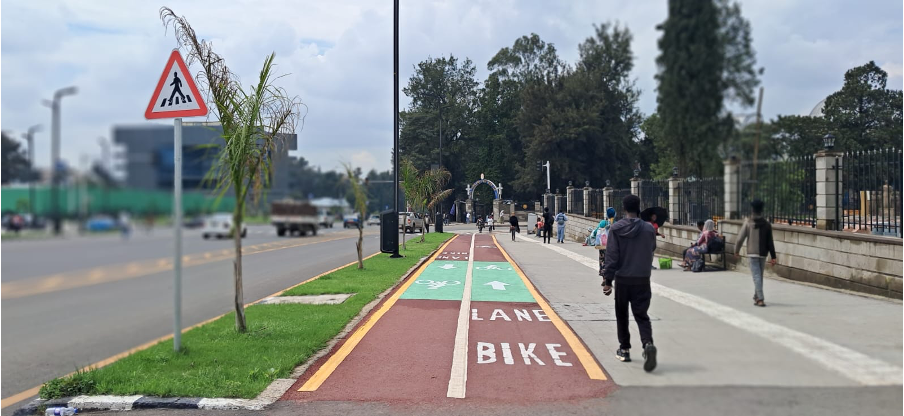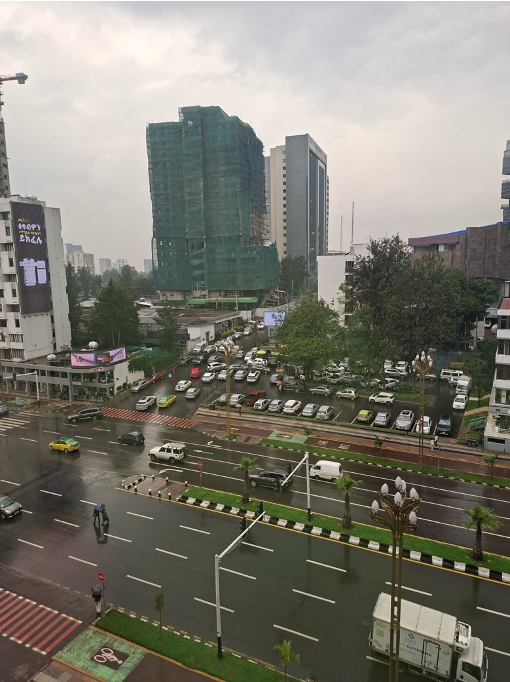IncluCity: Inclusive Cities Pilot to be launched in Addis Ababa

The Inclusive Design team at the GDI HUB is preparing to launch the first Inclusive City Pilot in Addis Ababa, Ethiopia, in collaboration with the UK Foreign, Commonwealth & Development Office (FCDO) and the RICH initiative by the Global Disability Fund. The pilot will build on our Global Action Report, which is the result of four years of research across six cities on three continents. It will test the implementation of the research findings and adapt the global learnings to local contexts.
Although led by GDI Hub, the pilot project will be executed in partnership with local stakeholders and partners, including OPDs, city administration, development organisations, civil society, academia, urban planning, architecture, and service providers. These various stakeholders will initially advise the project by identifying three to four priority areas through the Bespoke Action Plan for Addis Ababa. Subsequently, they will review and strengthen their standards development based on local needs and culture, provide technical support to projects, and explore ways to incorporate accessibility systematically into their implementation and monitoring processes.
The GDI Hub team recently made an initial introductory visit to Addis Ababa to gain a deeper understanding of the city and to connect with various city stakeholders, including OPDs and the city administration. We were indeed delighted to have chosen Addis Ababa for the pilot, and all our initial thoughts on why Addis were validated. Below, I am sharing a few of the reasons why Addis Ababa is a great city for the pilot project
- A city with a rapid pace of development – The city is undergoing a swift transformation due to the Addis Ababa Corridor Project, which aims to enhance the city’s infrastructure and improve the quality of life for its residents. The project’s strategic vision is to enhance the city's beauty while promoting cleanliness, creating a more comfortable and attractive urban environment. The development includes the creation of dedicated bicycle lanes, wide pedestrian walkways, and improvements to roads, traffic flow, and accessibility. The plan also involves creating public parks and libraries, and spaces for recreation and learning. Housing is also being designed to meet the increasing demand for accommodation in the city. We believe that our inclusive city pilot project can make a significant contribution to the ongoing development by fostering inclusion.
- Ethiopia has a strong network of OPDs and civil society organisations, with a vibrant disability movement involving numerous OPDs, INGOs, and development organisations engaged in urban planning and architecture. Most are based in Addis. They have made significant progress in inclusion advocacy and accessibility projects. The Ethiopian Human Rights Commission is also actively addressing complaints concerning accessibility and inclusion. We aim to learn from and build upon existing efforts through the pilot.
- Welcoming city authorities – we met with various city and national government officials during our visit. They all welcomed the pilot and recognised the importance of the project, willing to support its implementation.
- Strong development agencies – the city is home to the African Union and major UN agencies. Having made initial contacts, we hope to continue to receive their advice and support in the implementation of the pilot.
We are eager to start the pilot soon, especially because Addis Ababa, as a city, shows great potential and capacity to become inclusive. Furthermore, the timing for the project also seems ideal. Ultimately, the project can provide Addis Ababa with significant benefits. It is often the first point of entry for many tourists visiting Africa, who may not stay to experience Ethiopia’s unique cultural heritage, natural landscapes, and wildlife, such as the rock-hewn churches of Lalibela, the Simien Mountains, and cities like Addis Ababa. Expanding the local knowledge and expertise gained through this project to other cities, towns, historic sites, and tourism attractions across the country can position Ethiopia as an attractive destination. An inclusive city and country are more welcoming, not just for persons with disabilities, but for everyone.
